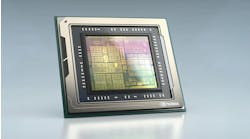General Motors and Autocar Industries formed a joint development agreement to create zero-emission vocational vehicles powered by GM's hydrotec power cubes, a fuel cell technology.
Autocar announced the initiative as an expansion in offering zero-tailpipe emissions solutions with GM's fuel cell technology as a way for Autocar's vocational customers to meet upcoming EPA heavy-duty emissions regulations.
"Autocar provides customized vocational trucking solutions, and as regulations change, we see hydrotec fuel cells as an additional avenue for our customers to meet their EPA requirements with zero tailpipe emissions vehicles," said Eric Schwartz, president of Autocar. "GM's scale, reliability, and the capability of their hydrotec fuel cell technology will enhance Autocar's existing platforms."
Fuel cells combine hydrogen and oxygen to generate electricity through an electrochemical reaction. The fuel cell converts energy stored in hydrogen into electricity to power a vehicle. Since fuel cells are lightweight and enable large payloads, range, quiet operation, and reasonable refueling times, they could meet the needs of heavy-duty applications, according to Autocar leaders.
"EV propulsion systems like GM's Ultium Platform are great solutions for electrifying passenger vehicles, but larger vehicles like Autocar's Class 8 trucks, refuse trucks, and terminal tractors require robust solutions that enable significant energy-carrying capacity and fast refueling times," said Charlie Freese, GM executive director of global hydrotec. "We want to enable zero tailpipe emissions solutions for the largest, highest energy-consuming vehicles, and fuel cells are ideal for the most energy-intensive applications."
See also: GM Defense awarded State Dept. contract for next-gen armored SUV
GM's hydrotec power cubes are "compact, easy to package, scalable, and can electrify vehicles and applications across various industries, from freight trucking, aerospace, and locomotives to power generation," according to the OEM.
The first of these vehicles is expected to go into production in 2026 at the Autocar truck plant in Birmingham, Alabama. Vehicles with hydrotec technology will be built to order by Autocar and sold directly to customers. Cement mixers and roll-off and dump trucks will be built first, followed by refuse trucks and terminal tractors.



